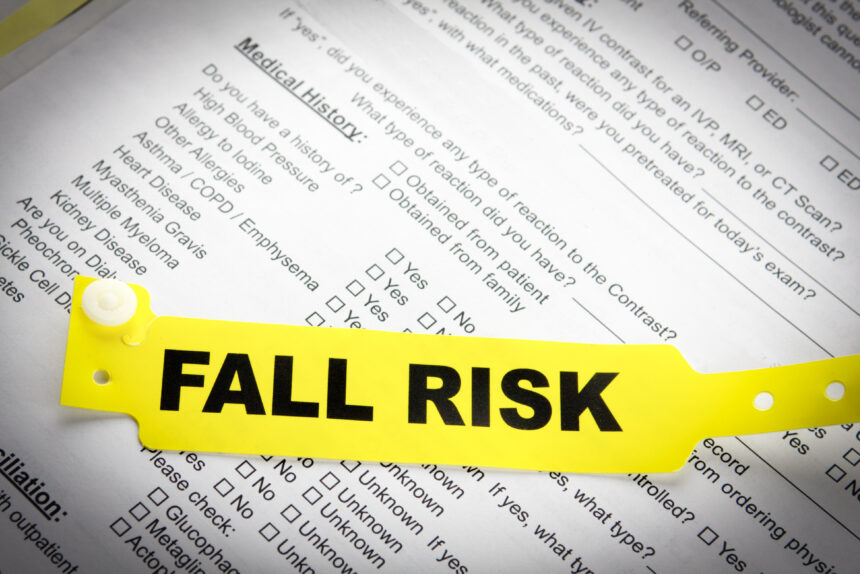The 45-Second Trick For Dementia Fall Risk
Wiki Article
Little Known Questions About Dementia Fall Risk.
Table of ContentsNot known Factual Statements About Dementia Fall Risk Getting My Dementia Fall Risk To WorkDementia Fall Risk Things To Know Before You Buy10 Easy Facts About Dementia Fall Risk ShownWhat Does Dementia Fall Risk Do?
However, based on symptoms and signs, such as proof of head injury or a new focal neurologic shortage, calculated tomography or MRI of the mind might be indicated - Dementia Fall Risk. An analysis for causes of syncope need to be carried out only if there is solid uncertainty, as when it comes to reoccurring, inexplicable drops
Medical care carriers use a loss risk assessment to recognize your risk elements for falling and make helpful referrals. An autumn risk analysis is crucial due to the fact that knowing which elements enhance your chances of dropping helps you: Lessen your risk of falling or injuring on your own.
All grownups 65 years and older need to have a first fall risk screening. Have dropped in the previous year. Worry concerning dropping.
The Best Strategy To Use For Dementia Fall Risk

Explore this comprehensive nursing care plan and administration guide to successfully stop risk for falls amongst individuals. Acquire crucial knowledge concerning the nursing assessment, nursing diagnosis, and goals particularly tailored to clients who are at danger for falls. A is specified as an occasion that leads to a person coming to relax unintentionally on the ground or floor or other lower degree (THAT, 2021).
According to the Centers for Condition Control and Avoidance (CDC),, triggering over 34,000 fatalities for that age group. Dropping is the 2nd leading reason of death from unintended injuries worldwide. Death from drops is a significant and endemic trouble amongst older people. It is estimated that fall fatality prices in the united state

Annually, over 800,000 people are hospitalized because of falls. Nurses play a major function in preventing drops for their clients via education and learning, evaluating fall risk, producing much safer atmospheres, and providing treatments in protecting next page against injuries from drops. Numerous threat aspects and problems add to falls, including the following:. Aged 65 years and older; lower arm or leg prosthesis; usage of assistive tools such as pedestrian, crane, and mobility device; living alone.
Loss are due to numerous aspects, and a holistic approach to the private and environment is vital. Mean a person check this site out is thought about at high risk for drops after the screening.
Dementia Fall Risk Things To Know Before You Get This
A requires utilizing a confirmed device that researchers have actually analyzed to be beneficial in calling the sources of falls in a person. As a person's health and wellness and situations modification, reassessment is required. The level of loss danger can be established making use of the evaluation of intrinsic and extrinsic variables. Criterion assessment tools can likewise be utilized (reviewed listed below).People are extra most likely to fall once again if they have actually maintained one or even more drops in the past six months. The older population is at increased threat of fall-related readmissions based on a research recognizing the aspects predictive go of repeat falls linked results (Prabhakaran et al., 2020).
The ability of individuals to protect themselves from falls is impacted by such elements as age and development. Older individuals with weak muscular tissues are a lot more likely to fall than those who maintain muscle mass toughness, versatility, and endurance.
Some Known Details About Dementia Fall Risk
Less comparison level of sensitivity was quite related to both boosted rates of falls and various other injuries, while lowered visual skill was only connected with boosted fall rate (Wood et al., 2011). Sensory understanding of ecological stimulations is paramount to safety. Vision and listening to impairment limit the client's ability to view threats in the surroundings.Older adults who have bad equilibrium or difficulty walking are more probable to drop. These problems might be related to lack of exercise or a neurological cause, joint inflammation, or various other clinical problems and therapies. An important threat factor highlighted in a research study is that adults with rheumatoid joint inflammation go to high risk of drops, including swollen and tender lower extremity joints, exhaustion, and usage of psychotropic medications (Stanmore et al., 2013).
Report this wiki page